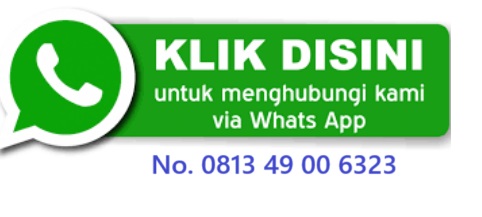Implementasi Model Pembelajaran Berdiferensiasi Pada Mata Pelajaran Pendidikan Agama Islam dan Budi Pekerti di SMK Negeri 1 Bojongsari Purbalingga
Keywords:
Model Pembelajaran Berdiferensiasi, Mata Pelajaran Pendidikan Agama Islam dan Budi PekertiAbstract
The learning model is an important component in learning because an effective learning model will greatly assist in the learning process to achieve learning objectives, unfortunately it is not uncommon for the model applied in learning to appear monotonous and uniform without considering the characteristics of students, as an innovation, the differentiated learning model is present as a more democratic learning model because it considers the characteristics and needs of students so that learning runs interestingly and effectively. This study was conducted with the aim of finding out how the Implementation of the Differentiated Learning Model in Islamic Religious Education and Character Education Subjects at SMK Negeri 1 Bojongsari Purbalingga. This study is a type of field research that is compiled using qualitative methods, to collect data researchers use interview, observation and documentation methods. While the method for analyzing data uses data reduction, data presentation and drawing conclusions. The results of the research that has been carried out show that the differentiated learning model implemented in Islamic Religious Education and Character Education subjects at SMK Negeri 1 Bojongsari Purbalingga through the preparation stage, implementation stage, and evaluation stage. The preparation stage, namely the teacher has a role as a designer, facilitator and motivator. While the implementation stage is divided into three activities, namely preliminary, core and closing activities. And the final stage is the evaluation stage to determine the development of student learning which consists of formative and summative tests.
Downloads
References
Adiyono, A., Fadhilatunnisa, A., Rahmat, N. A., & Munawarroh, N. (2023). Islamic Religious Education Learning Outcomes Evaluation: Implementation of Steps, Concepts and Solutions in Public Elementary School. AL-ISHLAH: Jurnal Pendidikan, 15(4), 5208–5222. https://doi.org/10.35445/alishlah.v15i4.4384
Al-Maroof, R. S., Alahbabi, N. M. N., Akour, I., Alhumaid, K., Ayoubi, K., Alnnaimi, M., Thabit, S., Alfaisal, R., Aburayya, A., & Salloum, S. (2022). Students’ perception towards behavioral intention of audio and video teaching styles: An acceptance study. International Journal of Data and Network Science, 6(2), 603.
Asyafah, A. (2019). MENIMBANG MODEL PEMBELAJARAN (Kajian Teoretis-Kritis atas Model Pembelajaran dalam Pendidikan Islam). Tarbawy : Indonesian Journal of Islamic Education, 6(1), 19–32. https://doi.org/10.17509/t.v6i1.20569
Azzahra, K. R. (2024). Differentiated Intruction in English Lessons. Jurnal Basicedu, 8(4), 3158–3164.
Bayumi, Efriyeni, Fauzie, dkk. (2021). Penerapan Model Pembelajaran Berdiferensiasi. CV. Budi Utama.
Fitra, D. K. (2022). Pembelajaran Berdiferensiasi dalam Perspektif Progresivisme pada Mata Pelajaran IPA. Jurnal Filsafat Indonesia, 5(3), 250–258. https://doi.org/10.23887/jfi.v5i3.41249
Ginting, N. B., Muhammadiyah, U., Utara, S., Setiawan, H. R., Muhammadiyah, U., Utara, S., Prasetia, I., Muhammadiyah, U., & Utara, S. (2024). Differentiated Learning Management in Islamic Religious Education Lessons. Lectura : Jurnal Pendidika, 15, 327–338.
Lexy J. Moleong. (2021). Metodologi Penelitian Kualitatif. Remaja Rosdakarya.
Marlina. (2020). Strategi Pembelajaran Berdiferensiasi di Sekolah Inklusif. CV. Afifa Utama.
Nadia Seftiani, M. N. (2024). PENGEMBANGAN MODUL AJAR KURIKULUM MERDEKA MATA PELAJARAN IPAS. Tarbawi, 7(1), 37–47. https://doi.org/10.26529/cepsj.543
Sulaiman. (2017). Metodologi Pembelajaran Pendidikan Agama Islam (PAI) (Kajian Teori Dan Aplikasi Pembelajaran PAI). In PeNA.
Downloads
Published
Versions
- 26-07-2025 (2)
- 26-07-2025 (1)
How to Cite
Issue
Section
License
Copyright (c) 2025 Nita Amalia, Rahman Afandi

This work is licensed under a Creative Commons Attribution-NonCommercial-ShareAlike 4.0 International License.






